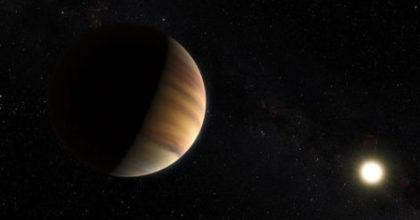
 )
)The Nobel Prize Winners were announced over the past week. James Peebles, Michel Mayor and Didier Queloz shared the physics prize for work on physical cosmology (Peebles) and discovery of the first planet outside our solar system (Mayor and Queloz). William Kaelin Jr., Sir Peter Ratcliffe and Gregg Semenza won the physiology or medicine prize for studying how our cells respond to oxygen. The one I’ve been thinking most about though is the prize in chemistry, awarded to John Goodenough, M. Stanley Whittingham and Akira Yoshino for developing lithium-ion batteries.
There are lots of angles for looking at the Nobel winners. This year continues a trend of immigrants to the United States being among the laureates. There are questions of who else could or should have won, such as Vera Rubin who discovered dark matter. Laureate Sir Peter Ratcliffe has been sharing a rejection letter he received for the paper that would ultimately win him the prize. Some are interested in the Christian faith of recipient John Goodenough. What I’ve been thinking about is the impact of the discoveries themselves.
The laptop I’m typing on uses a lithium-ion battery, as does the car I drive and quite possibly many of the devices you are using to read this. Improvements in battery technology have created a variety of opportunities for additional technological developments and changes in our energy consumption. Generated electricity either needs to be used immediately or stored in some other form. This is one of the challenges for moving away from burning fossil fuels for electricity and relying on solar, wind and waves instead. Fossil fuels represent a stable form for energy storage, to be released as demand for electricity requires. Solar panels and wind turbines produce electricity on their own schedule, not ours. Storage allows us to get renewable electricity on our schedule. On municipal grid scale, batteries are not the most efficient storage option, but in cars and electronics they are quite useful. So better batteries like the lithium-ion ones for which Goodenough, Whittingham, and Yoshino got the Nobel Prize are a good thing, right?
Unfortunately, that is not the complete story. Lithium-ion batteries use lithium and cobalt, metals that we have to mine from the earth. Cobalt mining has come under scrutiny for the use of child labor. Some companies are taking steps to eliminate child labor from their supply chain, although the relative value of cobalt will continue to provide incentives until there are sufficient other economic opportunities. Perhaps Economics laureates Esther Duflo, Abhijit Banerjee, and Michael Kremer can help; they won for experimental research on which programs are most effective at reducing poverty.
I don’t think Goodenough, Whittingham, and Yoshino are directly responsible for the way cobalt mining has changed to meet the demand for lithium-ion batteries. I doubt they could have predicted how widely their technology would be adopted or what it would take for supply to keep up with demand. Mostly I just felt it was important that we consider together the positive and negative consequences of the world-changing science that we are recognizing this week.
Andy has worn many hats in his life. He knows this is a dreadfully clichéd notion, but since it is also literally true he uses it anyway. Among his current metaphorical hats: husband of one wife, father of two teenagers, reader of science fiction and science fact, enthusiast of contemporary symphonic music, and chief science officer. Previous metaphorical hats include: comp bio postdoc, molecular biology grad student, InterVarsity chapter president (that one came with a literal hat), music store clerk, house painter, and mosquito trapper. Among his more unique literal hats: British bobby, captain’s hats (of varying levels of authenticity) of several specific vessels, a deerstalker from 221B Baker St, and a railroad engineer’s cap. His monthly Science in Review is drawn from his weekly Science Corner posts — Wednesdays, 8am (Eastern) on the Emerging Scholars Network Blog. His book Faith across the Multiverse is available from Hendrickson.

Leave a Reply